How Urban Company Generated ₹827 Crore Revenue by Solving India's Trust Problem: The Professional Service Branding Strategy That Organized Chaos
- Nayan Tomar
- Jul 31, 2025
- 4 min read
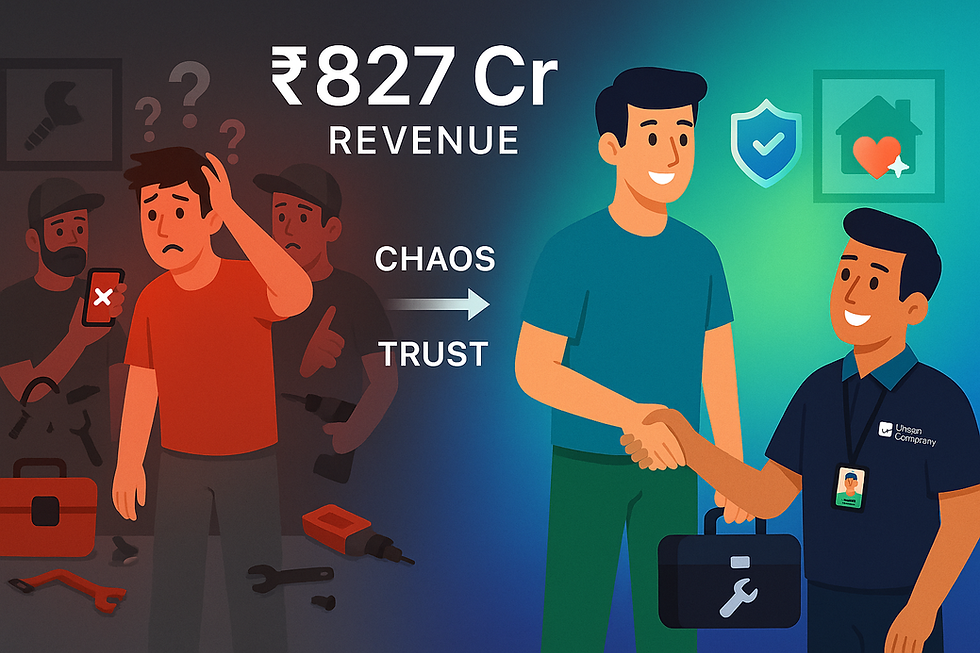
Reading Time: 5 minutes
From India's unorganized home services chaos to ₹827 crore revenue with 30% year-over-year growth Urban Company's trust-building marketing strategy proved that service sector branding requires 5x more investment in credibility signals than product marketing, transforming stranger-danger anxiety into premium service confidence through systematic professional verification and quality assurance positioning.
The Trust Deficit Challenge: When Strangers in Your Home Becomes Business Model
Before Urban Company launched in 2014, India's home services sector operated on informal networks, word-of-mouth recommendations, and neighborhood contractors with zero accountability systems. The fundamental challenge wasn't service availability but customer confidence in allowing unknown service providers into private homes.
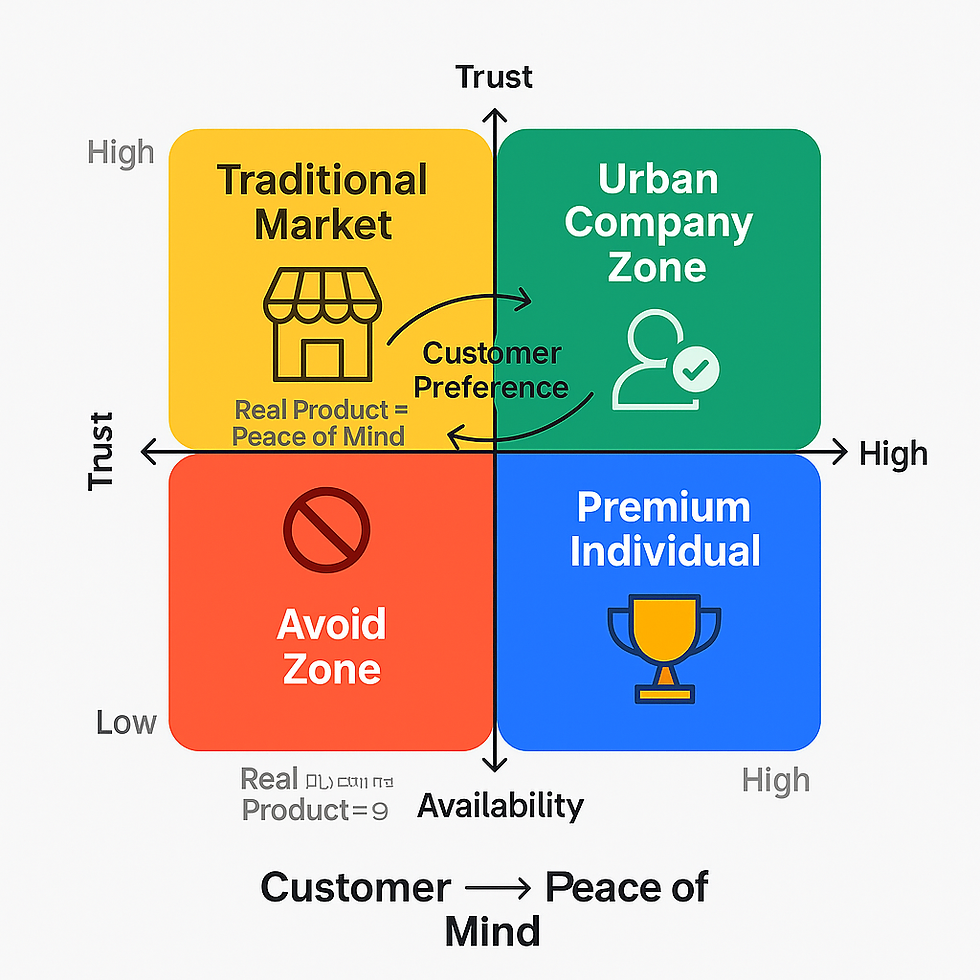
Traditional home services marketing faced an impossible equation: customers needed services but feared safety risks, quality inconsistencies, and pricing disputes. The psychological barrier was massive - inviting strangers into personal spaces requires extraordinary trust levels that conventional advertising cannot build.
Urban Company identified that the real product wasn't home services but peace of mind. Their breakthrough insight was positioning themselves as the trust layer between customers and service providers rather than just a booking platform. This required rebuilding the entire service delivery experience around credibility signals rather than convenience promises.
The validation proves remarkable: Urban Company reported ₹827 crore revenue in FY24, representing 30% year-over-year growth, while achieving their first-ever profitability with ₹7 crore profit before tax in April 2024. More importantly, they built this revenue by solving trust rather than just aggregating service providers.
Professional Verification as Marketing Strategy: When Background Checks Become Brand Differentiation
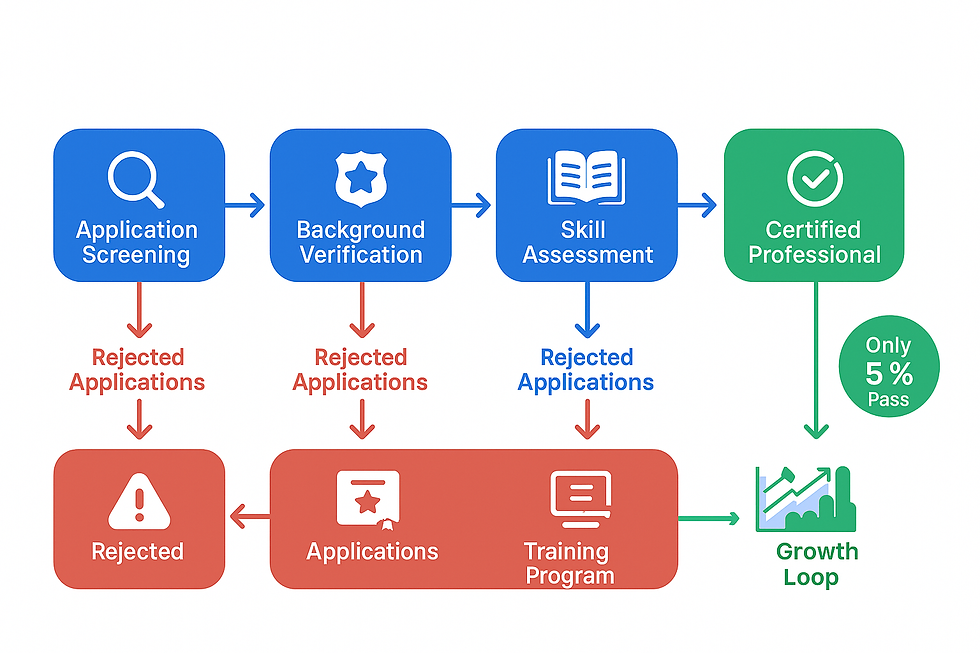
Urban Company's core marketing innovation involved positioning rigorous verification processes as customer benefits rather than operational overhead. The platform performs comprehensive background checks and police verification of all service providers, but markets these processes as premium service guarantees rather than basic safety measures.
The professional verification strategy works because it transforms intangible service quality into tangible credibility signals. Customers cannot evaluate service competence before purchase, but they can evaluate verification thoroughness. Urban Company's marketing emphasizes verification depth as proof of service quality standards.
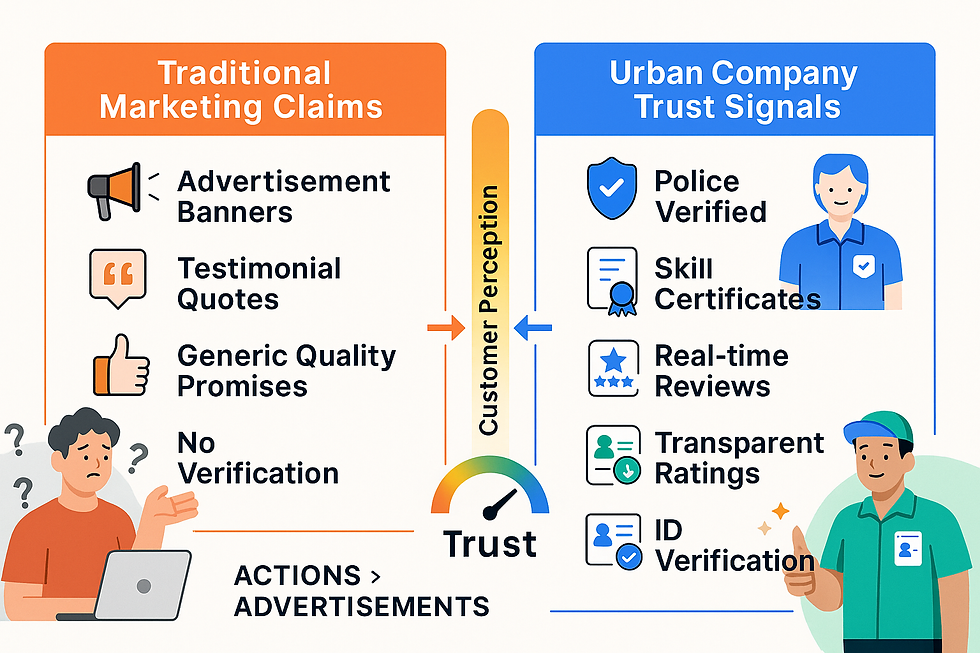
The positioning psychology proves powerful: by highlighting verification rigor, Urban Company signals that they understand customer fears and invest significantly in addressing them. This approach builds trust through demonstrated investment rather than marketing promises alone.
Their curated network approach involves meticulously building their professional network through background checks and skill assessments, ensuring baseline competence and trustworthiness. The marketing messaging focuses on "curated professionals" rather than "available services," positioning exclusivity as quality assurance.
The verification-first marketing generates higher customer lifetime value because trust-driven acquisitions create stronger retention. Customers who choose Urban Company for safety reasons typically become loyal users who value consistency over price competition.
Transparency Through Real-Time Reviews and Accountability Systems
Urban Company extended their trust-building strategy through comprehensive transparency systems that make service quality visible and accountable. The platform enables real-time reviews, building transparency and accountability from day one, creating continuous feedback loops that reinforce quality standards.

The review system works as social proof amplification where positive customer experiences become marketing content for future service bookings. Unlike traditional advertising that makes claims about service quality, Urban Company's review system provides verified customer testimonials that carry higher credibility.
More importantly, the public review system creates professional accountability pressure that maintains service standards without direct company oversight. Service providers understand that poor performance immediately impacts their earning potential through visible customer feedback.
The transparency approach generates viral marketing effects through customer confidence sharing. Satisfied customers naturally recommend Urban Company to friends and family because they trust the verification and review systems to deliver consistent experiences.
Service Standardization Communication: Premium Positioning Through Process Clarity
Urban Company's breakthrough marketing insight involved communicating service standardization as premium differentiation rather than commoditization. While traditional service providers emphasize individual expertise, Urban Company markets systematic quality control as superior reliability.
Professional Brand Building Through Uniform Standards
The standardization strategy addresses the core problem in service sector marketing: inconsistent customer experiences that damage brand reputation. Urban Company markets their training programs, service protocols, and quality checkpoints as evidence of professional-grade service delivery.

Their approach focuses on strong brand trust through verified professionals and transparent pricing, combined with full-stack model ensuring quality control and consistent service delivery. This systematic approach allows them to make reliability promises that individual contractors cannot match.
The professional positioning works because customers prefer predictable quality over variable expertise. Urban Company's marketing emphasizes that customers receive trained professionals following established protocols rather than gambling on individual contractor capabilities.
The standardization messaging creates premium pricing justification because customers understand they're paying for systematic quality assurance rather than just service completion. This positioning allows Urban Company to charge higher prices than informal service providers while maintaining strong demand.
Technology Integration as Trust Signal
Urban Company leverages technology integration as credibility enhancement rather than just operational efficiency. Their user-friendly app with AI-driven personalization and seamless UX signals professional sophistication that builds customer confidence in service quality.

The technology positioning works because digital sophistication implies operational competence in customer psychology. Companies with superior apps and booking systems are perceived as more reliable service providers, even when technology doesn't directly impact service delivery quality.
The app-based booking system also creates service tracking and accountability that traditional contractors cannot provide. Customers receive professional communication, service updates, and digital receipts that reinforce Urban Company's corporate reliability positioning.
Strategic Takeaways: Building Trust-First Service Sector Brands
Urban Company's growth from startup to ₹827 crore revenue offers clear frameworks for marketing service-based businesses where trust represents the primary purchase barrier.
First, identify whether you're selling services or selling confidence in service delivery. Urban Company succeeded by marketing trust systems rather than just service capabilities. Service sector marketing requires addressing customer psychological barriers before promoting functional benefits.
Second, use operational investments as marketing differentiation. Background verification, training programs, and quality control systems become competitive advantages when positioned as customer benefits rather than internal processes. Transparency about these investments builds credibility that advertising claims cannot match.
Third, leverage technology as professionalism signaling rather than just efficiency tools. Digital booking systems, app interfaces, and automated communication create corporate credibility that individual service providers cannot replicate. The technology investment signals systematic reliability.

The broader insight for marketers: service sector branding requires proving trustworthiness through demonstrated investment rather than promotional messaging. Customers believe actions more than advertisements, especially when inviting service providers into personal spaces.
Urban Company proved that organized service delivery systems create sustainable competitive advantages in traditionally fragmented markets. Their 30% revenue growth demonstrates that customers willingly pay premiums for systematically reliable service experiences over price-competitive but unpredictable alternatives.
.png)


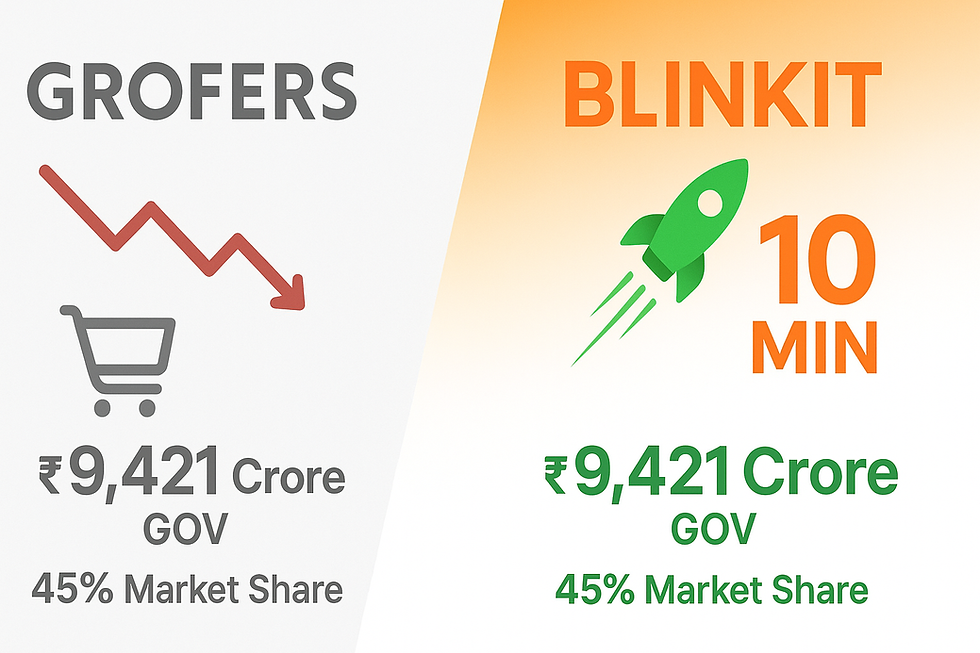
Comments